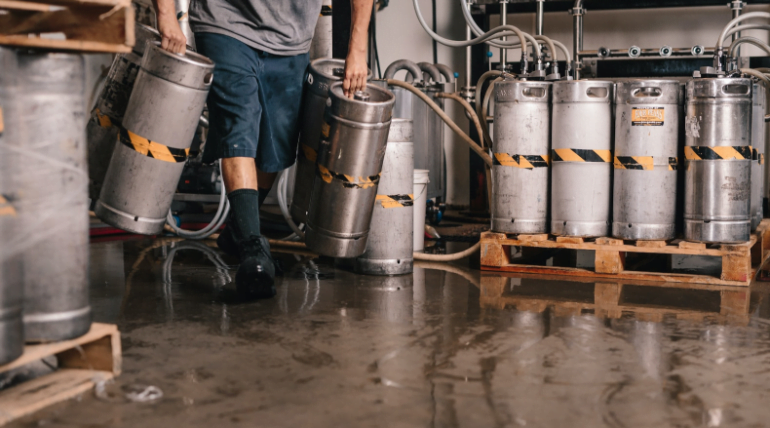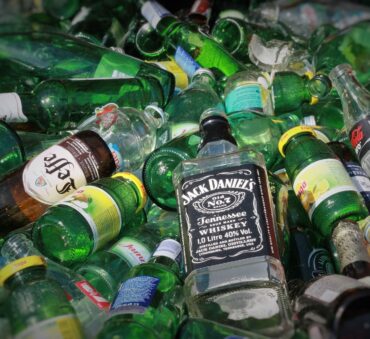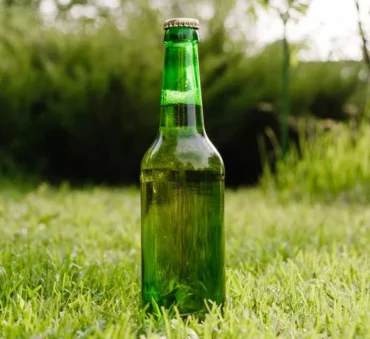Beer keg decanting
Beer kegs have been a common vessel for commercial beer and home brewing for many years. And while it’s a convenient solution for storing and keeping large amounts of beer fresh for longer, it cannot do so indefinitely. To maintain health and quality standards, beer keg decanting is a necessity. But it’s not as straightforward as it may seem, and there are many legalities when it comes to decanting beer kegs and properly disposing of their contents.
What is beer keg decanting?
Beer keg decanting is the liquid waste disposal process, that involves draining beer leftovers using a safe dispensing system. A proper dispensing system will remove all the gas (CO2/N2/Mixed Gas), but it must be drained using a safe tapping device to do so. The tap should only allow air in and not liquid out, this way you can ensure that there is no contamination from alcohol waste, other liquids, or airborne contaminants as well.
Can you recycle beer kegs?
Unlike simple beverage container destruction, recycling a beer keg is a much more logistically-challenging process. Depending on your local laws and regulations, you may be able to recycle the keg yourself or need to enlist the help of professionals.
It’s important to be aware of all the laws and rules surrounding beer keg recycling before beginning this process so that you can make sure everything stays legal and above board.
There are no federal laws on beer keg decanting in the United States. Instead, each state has its own rules regarding the legalities of keg recycling and disposal. However, it is illegal in most states to sell the cooperage or refill a keg without the owner’s permission. Therefore, kegs themselves are most often returned to their owners.
If disposal of the beer content involves the municipal sewers, this needs to be arranged and approved in advance by the local authorities whilst also obeying local environmental laws. Beer is generally high in BOD/COD and low in PH, so it is important to be in full liquid permitting compliance with any discharge into sewer systems as this may require pretreatment prior to discharge at some facilities.
We can help you safely and legally decant and recycle your beer kegs.
How can the beer from kegs be recycled?
While many people assume the beer is dumped down the drain or sent to landfills when it reaches expiration, you may be surprised to learn that there are several ways in which decanted beer can be recycled without impacting the environment:
Animal feed
The sugars in beer are of interest to the animal industry. These sugars make beer one of the best solutions for feedstock recycling. Beer’s often used as a substitute for corn syrup in pig and poultry feeds because it has a much better nutrient profile than corn syrup. Beer grain extract can also replace molasses in cattle feeds; its higher protein content improves the quality of milk from cows when compared with molasses-based diets.
Composting and Land Application
Beer contains high levels of sugars which are broken down by bacteria during composting into acids that help break down organic matter more quickly than other materials like paper or cardboard would do on their own. Beer has been found to contain nutrients that are often lacking in soil, such as nitrogen and phosphorus. These two elements are essential for plant growth—making them ideal candidates for composting at farms or other food-growing operations where they can help grow crops without harming our natural environment. It can also be used as a fertilizer to enhance crop yields.
Anaerobic Digestion and Biofuels
In anaerobic digestion, bacteria break down the organic matter in waste streams, creating biogas (which can then be used to produce electricity). These systems are usually applied to large volumes of human and industrial waste in municipal treatment plants. However, they can also be implemented on smaller scales with food scraps or other organic materials.
Ethanol
Ethanol production uses yeast fermentation technology similar to what’s used when brewing beer! This process converts starch into alcohols like ethanol fuel—a renewable resource that can replace fossil fuels as an energy source
Why it’s best left to the professionals
Disposing of large quantities of beer from kegs in a safe manner is best done by experienced facilities and a company like Skip Shapiro Enterprises LLC. Decanting beer kegs is a complicated process that requires knowledge of the local state laws, municipal ordinances, and other regulations. It’s important for businesses who want to become involved in this business practice to take all the necessary steps, so they don’t violate any laws or regulations.
Do you need help safely decanting your beer kegs? Skip Shapiro Enterprises has been managing beer keg disposal since 2007 and has a large national network of fully equipped recycling facilities. Our experienced logistics department can provide efficient and timely removal and disposal. Contact us any time.
Baily Ramsey, an accomplished marketing specialist, brings a unique blend of anthropological insight and marketing finesse to the digital landscape. Specializing in educational content creation, she creates content for various industries, with a particular interest in environmental initiatives.



